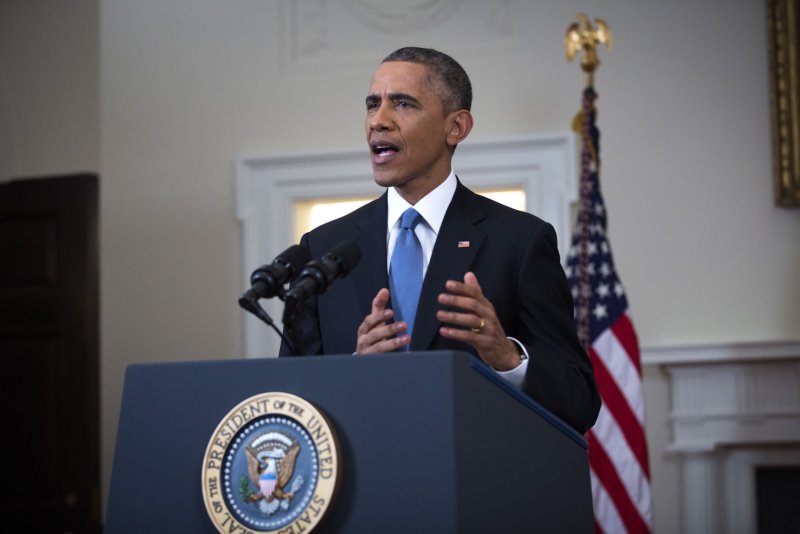1 of 7 | President Barack Obama delivers an address announcing that the U.S. will work with Cuba to normalize diplomatic ties in the Cabinet Room of the White House, December 17, 2014. The measures announced by the administration, include plants to re-open an embassy in Havana and significantly ease restrictions on travel and commerce. UPI/Doug Mills/Pool |
License Photo
WASHINGTON, Dec. 18 (UPI) -- The historic announcement normalizing diplomatic relations between the United States and Cuba was praised by governments around the world Thursday.
Joint declarations by President Barack Obama and Cuban President Raul Castro on Wednesday proclaimed the start of a mutual effort to abandon what Obama called a "rigid and outdated policy" of Cuban isolation. The normalization is expected to lead to improved trade and visitation between the two countries, hostile to one another for over 50 years, although a U.S. embargo remains in place.
The announcement followed secret negotiations, in part facilitated by Pope Francis and the Canadian government. The Pope called the move "historic", and Canadian Prime Minister Stephen Harper, in a congratulatory message, acknowledged Canada's pride in participation.
The European Union, itself attempting to normalize ties with Cuba, called it an "historical turning point." Leaders at a Latin American summit in Argentina cheered when the announcement was made. Church bells pealed in Havana.
"This is a moment that marks a change in civilization, showing that it is possible to re-establish relations broken for many years," Brazilian President Dilma Rousseff said at the summit.
"This is my dream, what I have wanted for the continent," Colombian President Juan Manuel Santos said in a statement to BusinessWeek. "In the name of the whole continent, we celebrate the audacity and courage of President Obama and the Cuban government."
Chilean Foreign Minister Heraldo Munoz referred to the breakthrough as a "the beginning of the end of the Cold War."
Venezuelan President Nicolas Maduro, whose late predecessor, Hugo Chavez, was a close friend of former Cuban President Fidel Castro and has supported Cuba while adopting a stance regularly opposing the United States, called the move a "moral victory" and a "victory for Fidel," while acknowledging Obama action was "brave."
The Russian news agency Sputnik News also hailed the move, but noted that issues such as the U.S. military presence at Guantanamo Bay, Cuba, and the stationing of U.S. military forces at a future U.S. Embassy in Havana, have yet to be resolved.
Bloggers in Cuba had positive comments, with one, Yuris Norido, writing, "Most people (in Cuba) reacted with joy and hope. The coming days will show the real scope of the measures, but for now the streets exude optimism. Contrary to what uninformed people may believe, Cubans do not harbor anti-American sentiments," the BBC reported.
Opposition to the policy change was found in some Cuba-American communities in Florida, and from some members of the U.S. Congress who represent them. The disagreement tended to split along generational lines, with older Cuban-Americans angered by the announcement, the BBC reported.
"It is a betrayal. The talks are only going to benefit Cuba," Carlos Munoz Fontanil said at a Miami protest, and Sen. Marco Rubio, R-Fla., commented the deal did not take Cuba's human rights record or Communist political system into account.















